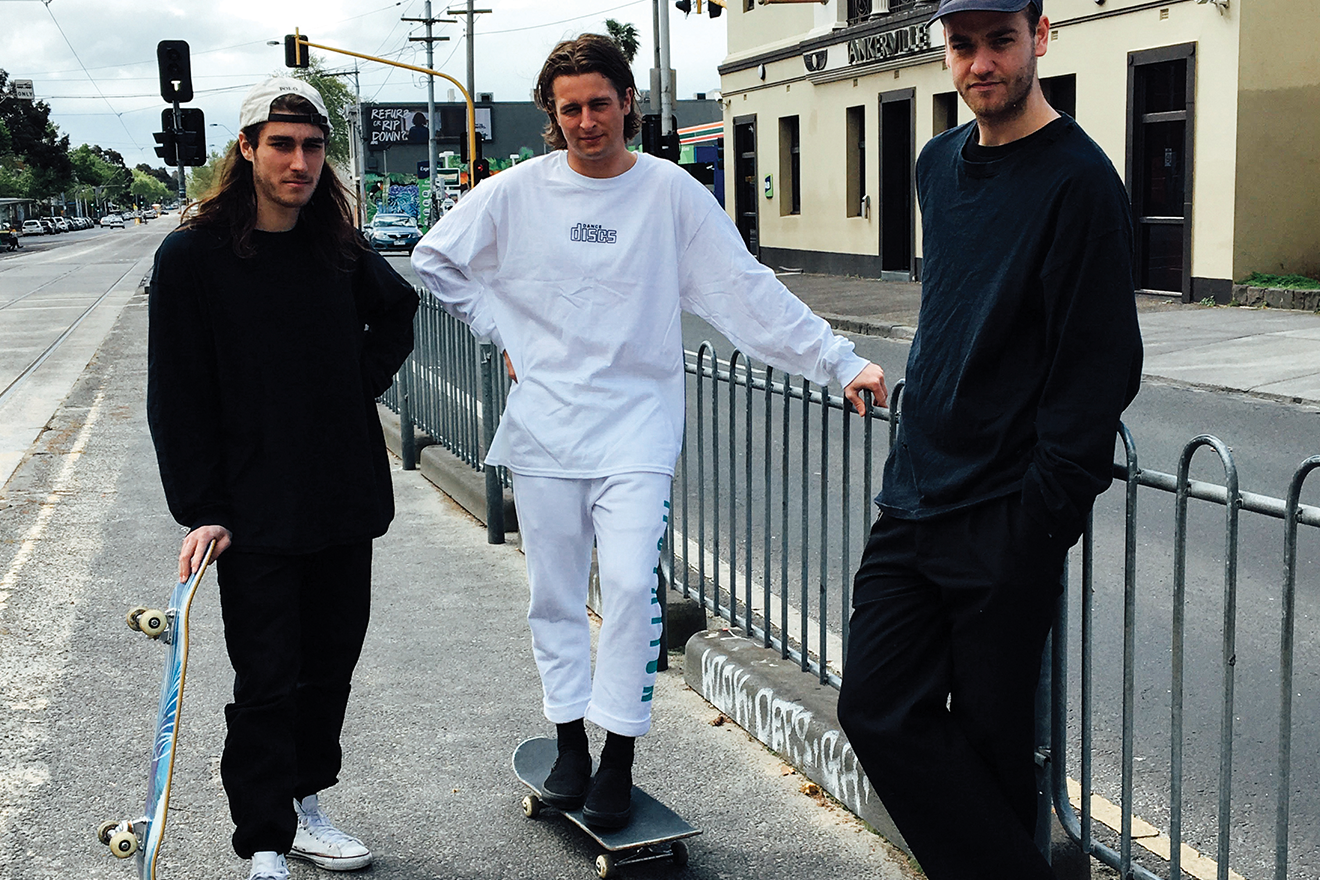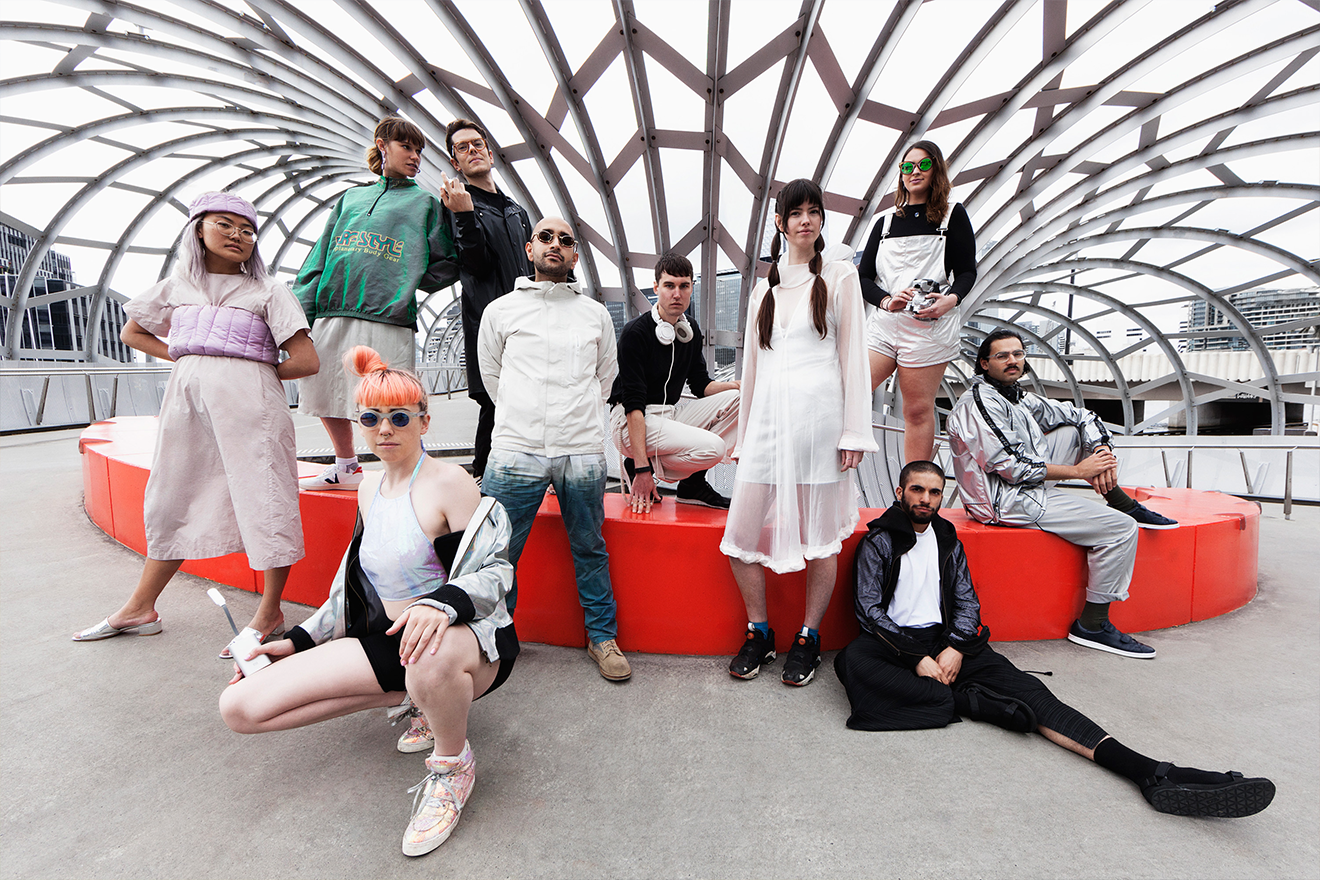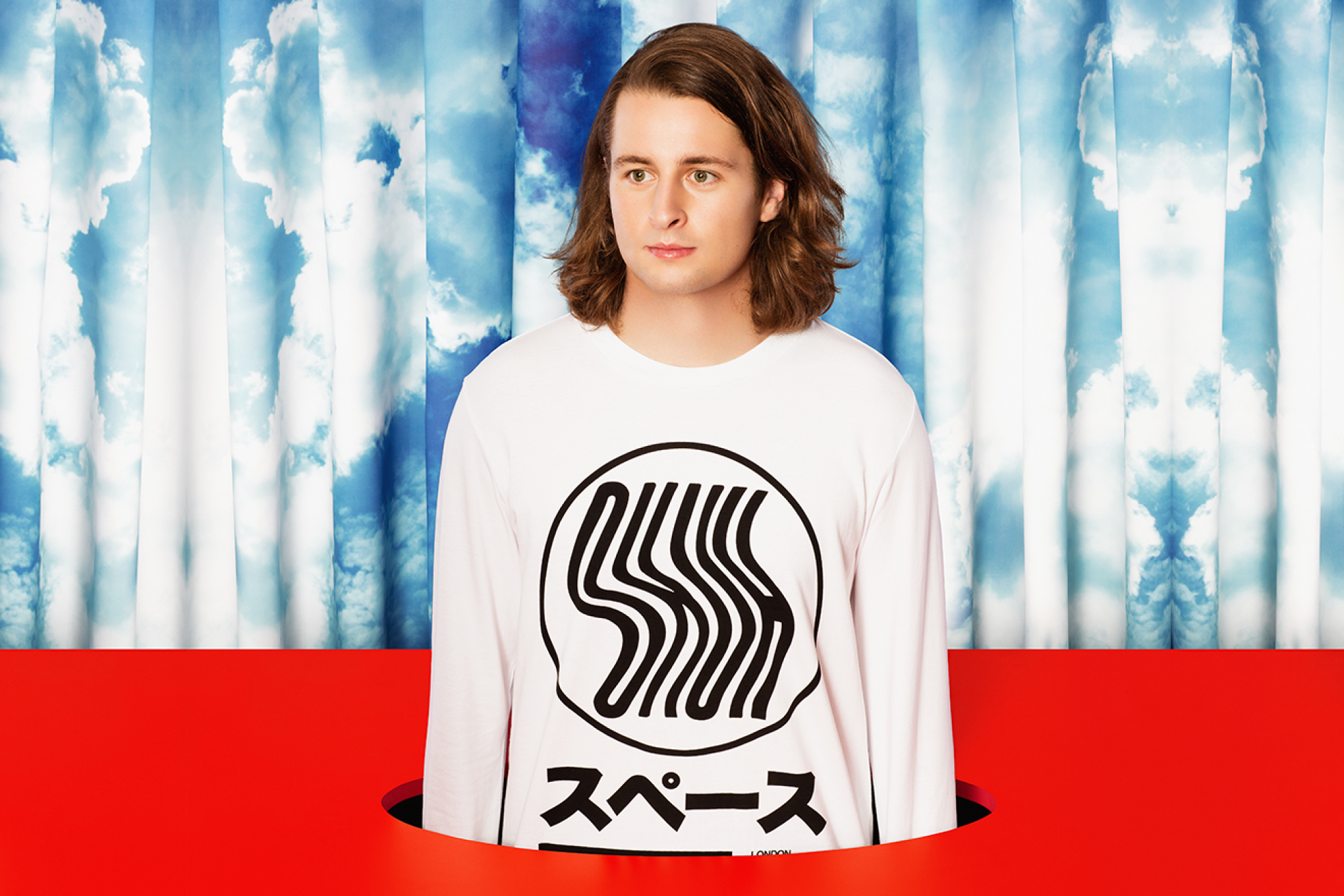 Cover stars
Cover stars
Hot property: The unstoppable rise of Mall Grab
23-year-old Jordon Alexander has seemingly come from nowhere in the past year
Jordon Alexander is about 5’9” and will typically be found in baggy clothes that make him look a bit more stocky than he really is: a skater-style XL T-shirt that celebrates one of his mate’s party brands, say, and a pair of culotte-style Issey Miyake trousers that end about five inches above his ankle. When DJing, skating and working his hair is tucked up in a little ponytail, but let down to his collar and combined with his delicate features it gives him the air of a doomed French poet, or the deep-lying playmaker in an Italian football team who drives his coach mad by refusing to defend. His arms are decorated with monotone tattoos including a cartoon leopard, cougar and a Pink Panther. He has a gentle, pleasant Aussie accent that augurs well for an upcoming Radio1 try-out, and the general air of polite positivity that often characterises the best of his compatriots. Right now, he’s probably the hottest property in house music.
Jordon grew up in Newcastle, on the South East coast of Australia, a city of 300,000 people about an hour and a half North of Sydney at the mouth of the Hunter River. An industrial port, it grew up around the harbour and the area’s huge coal and steel industry (hence the name of his label, Steel City Dance Discs). While the massive BHP steelworks closed in 1999, the harbour is still the biggest exporter of coal in the world, yet the idyllic beaches and affluent population mean it has a sizable skate and surf scene. “It’s quite schizophrenic,” says Jordon. “There are some genuinely bohemian people but there are also heaps of kids with really rich parents who try to act out the lifestyle: you’re never sure whether they are legit or just doing it because it’s cool.” Jordon’s parents were both teachers – his mum taught art and his dad still teaches science as well as running an antique restoration shop. His mum quit teaching just after Jordon was born when she was diagnosed with the painful and debilitating neurological condition multiple sclerosis, and she now helps out in the shop – Jordon has plans to hold fundraising parties next year for the MS Research Australia, which researches the little understood condition). At school he says he was ‘a little skater menace’, though with “nothing to rebel against” he struggles to find examples of childhood delinquency aside from throwing his skateboard at a car once after the driver shouted at him: “The group of us all went running in different directions, I remember thinking it was like the beginning of Trainspotting!” Despite not being a particularly good student, he went on to start studying psychology at the University of Newcastle in 2013. Two years later, though, his life and career were to take a very different turn.
Jordon had been DJing since he was 12, using his dad’s old Talking Heads records supplemented with “weird disco stuff I’d find at the second-hand book shop”. Like so many gifted DJs he began his apprenticeship with some very basic gear: “I had two old turntables, one a Technics and the other a Sony without pitch control, and a two channel own-brand Radioshack mixer.” His entry point proper into club music was electro, which by 2007/8 was having a golden moment in the country thanks to the likes of Modular Records and the Bang Gang DJs. Through them he moved on to the second wave of French Touch: “Ed Banger and all of that French electro. Everything about it was just so… cool, the clothes were really cool, the music was sick, the girls were beautiful, the atmosphere. Then from there, Justice. I got a little bit obsessed with Justice to the point where I wanted a cross tattoo!”

His tastes in dance music broadened thanks to skate videos and a source that’s proved crucial to his generation of DJs and clubbers, albeit one that’s sometimes overlooked. “The Grand Theft Auto soundtrack! That’s part of the reason I started getting into more classic house from the tropical electro stuff – because of SF-UR, the radio station from GTA San Andreas; hearing A Guy Called Gerald and Fingers Inc.”
It was mid 2014, while studying at uni, working part-time at Domino’s Pizza, playing the odd house party and entering the odd DJ competition – having graduated to CDJs – that Jordon started uploading tunes to SoundCloud. Within months, he received an email that would change his life. It came from the enigmatic Nikhil Kasturi, who was about to start Collect Call Records in Montreal, and wanted to release one of Jordan’s tracks. The ‘Feel U’ EP came out on May 26 2015 on Collect Call and was an instant hit. A follow-up in October on now defunct label 1080p, ‘Elegy’ confirmed that a major talent was incoming. It also saw him hailed, unwittingly, as poster-boy for a new scene: ‘lo-fi house’.
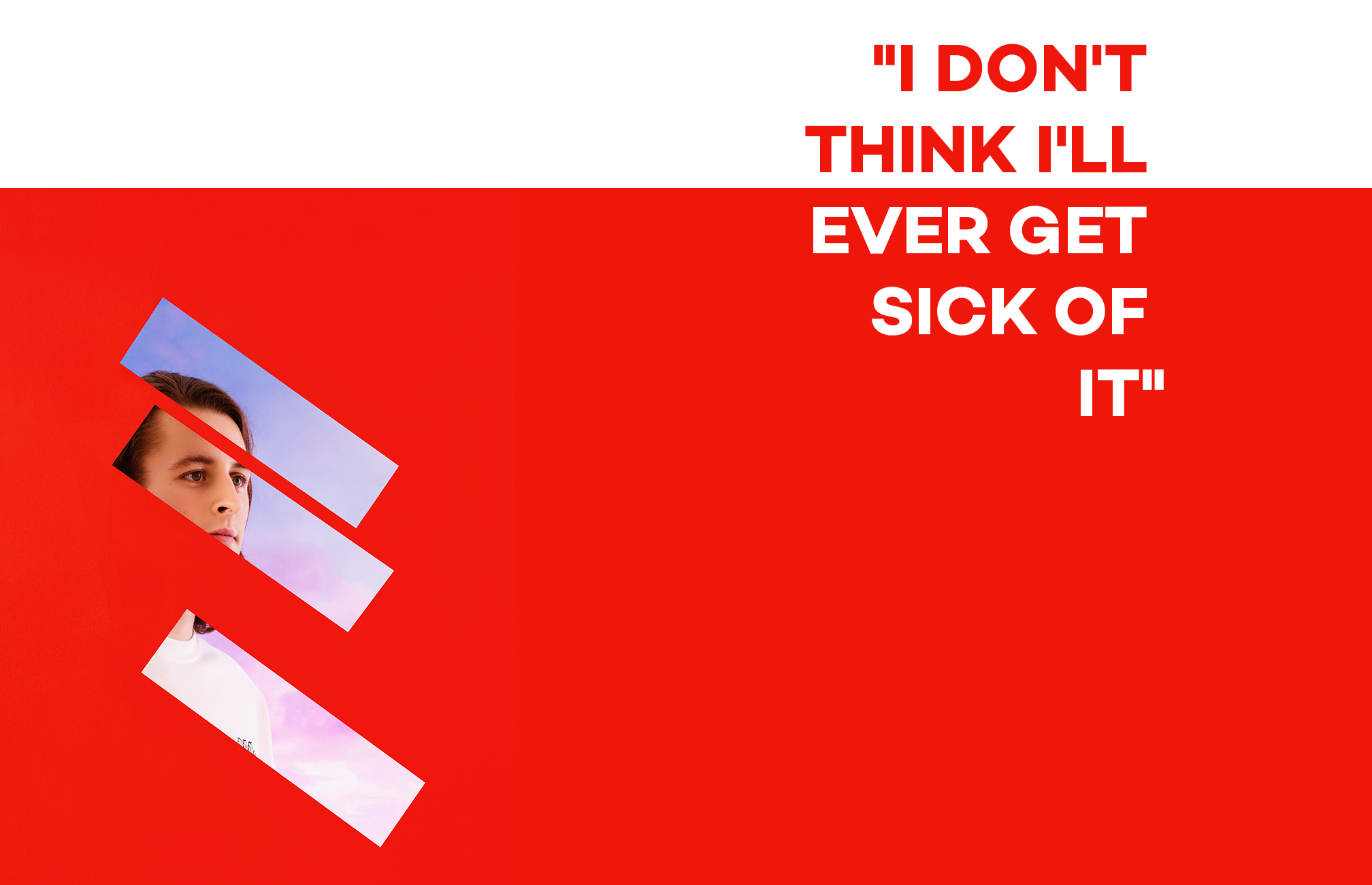
At the very mention of the term, Jordon recoils and makes a sign with his hand like he’s trying to ward off a secular vampire. “It was totally accidental! All I had was my laptop and I was so new to producing I was just experimenting and trying all these different kinds of things. If I ran it through my guitar amp, even though it distorted the shit out of it to a point I could still at least fiddle about with the his and lows. Essentially I ran it through an analogue filter – my shitty little vox amp which also had mad effects on it, like a little fake reverb which was quite funny.”
His concern is not just being associated with a genre that, like the myriad springing up online every day, has a built-in obsolescence; it’s also about authenticity.
“There’s a difference between that and running something through a distortion filter to fuck it up on purpose. It has to happen organically, and when you try to do something it backfires because I think a lot of the time you can tell when it’s on purpose.”
If the whole lo-fi thing is a red herring there’s one word that comes up in many reviews of Mall Grab releases: ‘dusty’. It suggests a sort of scuzzy warmth, a vinyl-ready authenticity. His use of Logic software rather than Ableton (the building block of so much generic tech ’ouse) also seems to help his tracks stand out. “I think [the dustiness] comes from the hip hop influence,” he says. “Obviously you listen to a J Dilla track or something like that, it comes a lot from sampling records as well. It’s a good term, especially when you play vinyl as it sounds much warmer because of the crackle.”
Authenticity seems to be something that’s important to Jordon, from the ironic title of one of his biggest tracks, ‘I’ve Always Liked Grime’ (which along with the Alicia Keys-sampling ‘Can’t Get You Outta My Mind’ saw him start to break out of the lo-fi box) , to his artist name – a ‘mall grab’, says the Urban Dictionary, is the ‘wrong’ way of holding a skateboard, with the rough grip tape of the deck rubbing against your trousers, and it instantly identifies the poseur as opposed to the genuine skater.
Fortunately, the strength and evolution of Jordon’s productions, and the sheer joy and diversity of his DJ sets, mean that he no longer has to worry about pigeonholing. Right now he’s one of the most exciting producers and DJs in house music of any fidelity. As he points out, “I think more than half my fans now are there because of the new stuff.”
But it happened so fast. And his journey mirrors what’s happening in ‘SoundCloud rap’ in the US with teenage artists like Lil Pump and Smokepurp building a fanbase by releasing their exciting experimental, DIY productions on the platform before being snapped up by A&Rs. Certainly the dizzying speed of his rise from bedroom producer to internationally in-demand DJ and Mixmag cover could only happen in this era of global dance music connectivity, and illustrates the rate at which new stars can be formed in this era. Like those unfettered hip hop artists, Jordon grabs what he needs from the mall of styles and genres and history and respectfully uses this material to create something new and fresh. With his European gig diary filling up, in October last year he moved to London. “An inspiring city, but I keep getting lost,” he admits. “I bought a bike as soon as I got here from some guy in Northampton, got off the train with it and decided to cycle home. I rode in elaborate circles for two hours in completely the wrong direction. The good thing is that when I do get lost I often end up stumbling across an incredible park or something.”
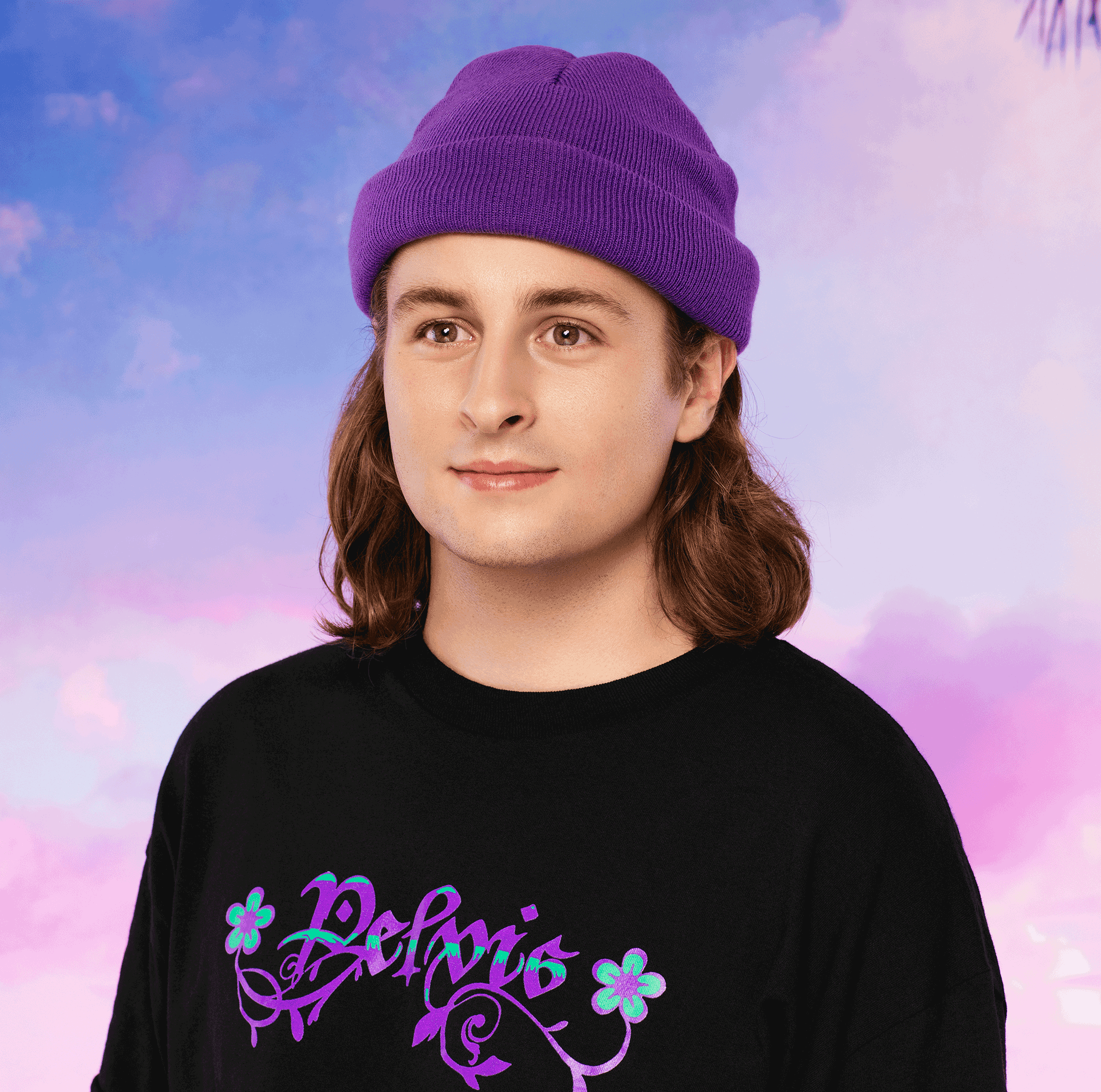
‘Lolita’ is the hottest, sweatiest, reddest, most androgynous room of Barcelona’s giant clubbing mothership Razzmatazz. This is where you come to see live acts on a vertical trajectory (a couple of years ago we watched Mykki Blanco astound the crowd in precarious silver stilettos and little else), or takeovers from underground labels like Lies and Studio Barnhus, both appearing on this showcase ‘This Is Hardcore’ weekend. It’s the hardest room to find in this tesseract of a club, something that seems to guarantee a dancefloor with genuine dedication every time. And none more so than for Mall Grab tonight. The minute he steps into the booth there’s a surge from the ecstatic young crowd. His set is heavy on his own productions but also wildly eclectic, the kind of set that in a world of homogenous dance music seems to hint at a brighter future where dancefloors are treated as intelligent and curious rather than mindless drones. It’s a quality he shares with DJs like Jackmaster and Nina Kraviz, who seem genuinely excited to break the bounds of genre and often seem to select as if they are rolling out their favourite tunes of the moment for a bunch of friends. Indeed, Jordon cites Jack as an inspiration: “he’s been doing it for so long and his touring schedule is like absolutely nuts – but he’s still so full of mad passion and so much energy when he plays. He manages to whip out completely different tunes all the time.”
Perhaps in Jordon’s case it’s because, as he’s at great pains to point out throughout our interview, he’s still learning about music and life and the industry and DJing himself, and that means he’s able to communicate a genuine sense of excitement and adventure. “When I first started learning about DJing, it seemed like you’d have so much respect for a DJ, [you’d want] to learn about the music they were playing,” explains Jordon. “It’s almost as if they were teaching you about music.” Maybe there’s another teacher in the Alexander family after all.
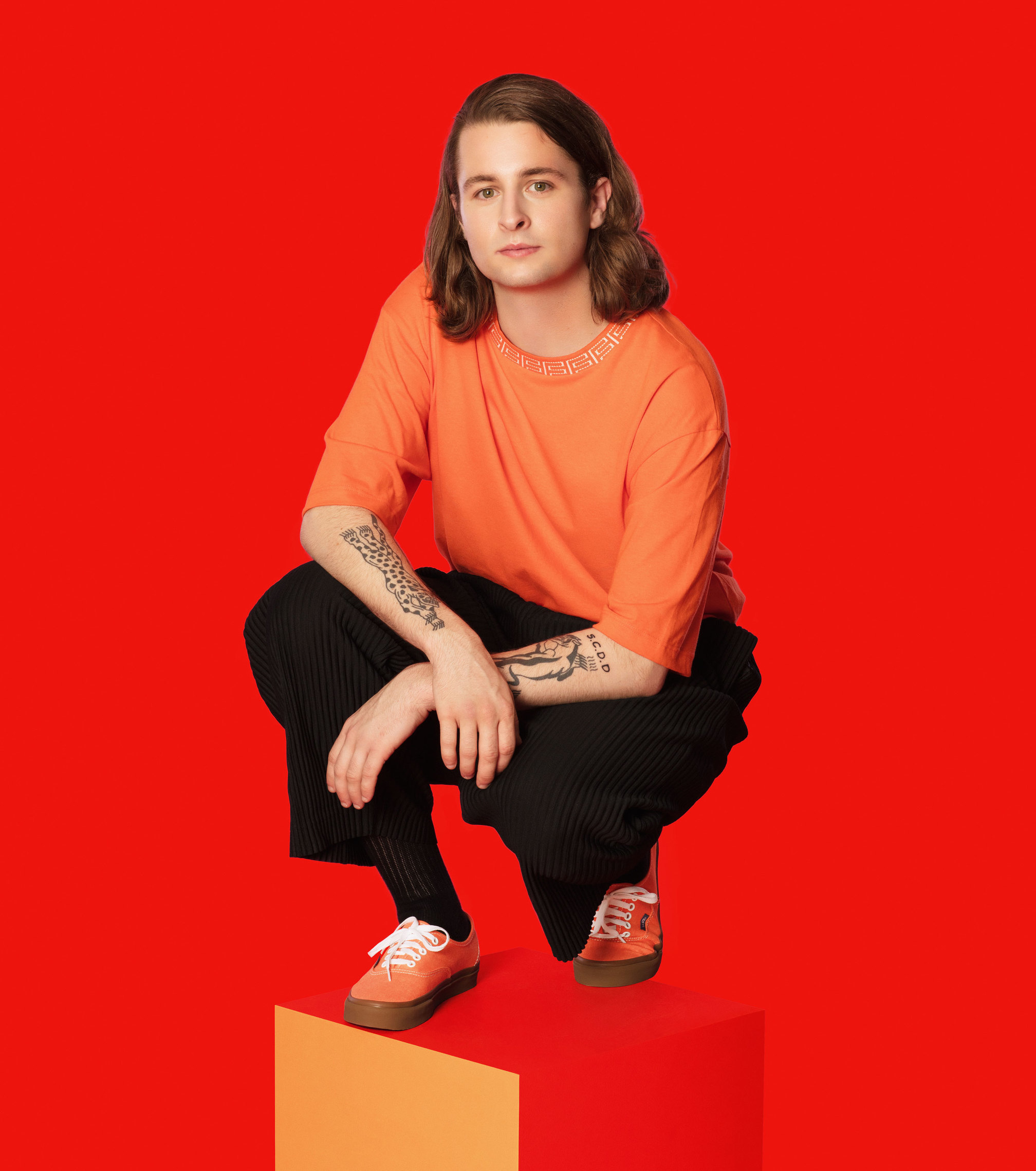
As Jasper James, who first met Jordon at Sub Club (later bonding at a typically raucous Glasgow afterparty) says, “I was trying to sneak rapid track IDs on the sly, which is always a good sign!” Fortunately after the triumphant end to his Razzmatazz set (it climaxes with ‘You Don’t Know me’ filtered to within an inch of its life and mixed up at the last minute with Young Thug’s ‘Best Friend’) Jordon is happy to talk Mixmag through some of his selections old and new, starting with Adonis’ 1987 proto-house jam ‘No Way Back’. “I was looking up Fingers Inc and I started learning about the Trax back catalogue, going through every Trax record. It’s a very simple 808 track that mixes so well; as soon as you change the low end over it just goes with anything. I’ve been playing it for four or five years now, which just goes to show how timeless the track is.” Another standby is Anil Aras ‘Old Stomping Ground’, which reminds Jordon of how big an influence DJ Haus and his Rinse FM show have been on him down the years. “I’d always listen to his Rinse shows back in Australia and they introduced me to the whole slap funk crew. I love that sound: not too minimal, not too techy, not too housey – every single track goes off in the club. I found this on one of their Raw Joints compilations – again it’s perfect to mix in, with its classic hip hop vocal sample and the big snare roll at the beginning.” He’s also currently reaching for one of his mates (and signings to SCDD), Salary Boy, and his track ‘Echo’. “Otto [Salary Boy] is one of my best friends and that’s the great thing about having a label – I get sent the songs they’ve just made and I can hear them straight away. It’s incredible. Being able to play something like that in a club and then going back and telling [the artist] about the reaction and how much people loved it is amazing.”
In fact, maybe that’s the best thing about Mall Grab. He really seems to be enjoying himself. He likes to go to festivals and clubs as early as possible, to soak up the vibes and listen and learn from the other DJs. He’ll head from a festival in Holland at break-neck speed to De School to hear Marco Shuttle and Talisman play banging techno. He loves learning about hip hop, jazz and the history of house music, and has been known to drop 70s post-punk group Gang Of Four into his sets. He’s visibly excited about visiting new countries to DJ at the upcoming Melt Festival in Germany and Neversea in Romania, or going back to Glasgow to hang out with Jasper and Denis Sulta, and Ireland where he says the crowds are the maddest in the world. He’s thrilled about having an upcoming track on Damiano’s label and showing people how he’s grown as a musician. “I don’t think I’ll ever get sick of it,” he says, as he heads off for the airport.
You know what? We believe him.
Find out more about the work of MS Research Australia, and make a donation towards finding a cure for multiple sclerosis, at msra.org.au



